On September 11, 2001, nearly 3,000 people in the United States were killed in a series of plane hijackings. The next day, media commentators across the political spectrum in Canada began calling for death and destruction abroad, even when they didn’t have a particular target, country or even continent in mind.
The following 20 years saw several wars, mass expansion of the security state and violations of civil liberties, hate crimes and systemic discrimination against Muslims and those thought to be one, and countless other injustices.
The media was not directly responsible for these events, but it did help create the sort of environment where people begged for them to happen. While most of us have a sense of this, fewer remember the specifics, especially as many, myself included, were kids at the time.
So, I’ve gone into the archives to show you exactly what some of the media discourse from columnists at major Canadian newspapers in the immediate aftermath of 9/11 looked like, with a focus on those that held onto their positions over the next two decades and are still working today.
Here’s what some of the country’s most ‘serious’ thinkers had to say in the aftermath of 9/11.
It did not take long after the towers were struck for opinion pages at major Canadian newspapers to turn into launching pads for bloodthirsty rants.
National Post columnist Christie Blatchford (who would go on to work at the Globe and Mail, and then return to the National Post, before her 2020 death) decided to start a September 12 article off like this: “My late father loved Americans, as I do. I could hear his voice yesterday, stilled 15 years ago next month, as surely as if he were in the car beside me. ‘Fuck ’em,’ he would have said. ‘Nuke ’em.’”
She went on to add: “His generation was not beset, as much of mine is, with the ambivalence engendered by decades of peace. He never had any trouble recognizing the enemy and he wouldn’t have any now. Made king of the world, he already would have bombed any nation, and the lair of any group, that had ever done anything to aid or abet Osama bin Laden, the Palestine Liberation Organization or any of the other Islamic terrorist groups.”
She then wrote, “His loyalties were always perfectly clear: America; Britain; Israel; the European allies; Australia and New Zealand. Because I am my era’s child, as well as his, I rush to add, he embraced these countries not because they were white — they weren’t, even then — but because they knew right and had the courage to act on that knowledge. My dad’s faith in the Yanks, as he always called them, would be unwavering today, correctly.”
That same day, Toronto Star columnist Rosie DiManno (who is still a columnist at the paper) wrote, “Because revenge is what Americans want, even as they held candlelit vigils last night and gathered in churches to pray. The flexing of U.S. military might is what they crave, the annihilation of those who perpetrated this grotesquerie. And who can blame them for wanting blood?”
Also that day, Globe and Mail columnist Margaret Wente (who would continue in that position until her 2019 retirement) wrote, “Those who are responsible are most likely men from remote desert lands. Men from ancient tribal cultures built on blood and revenge. Men whose unshakable beliefs and implacable hatreds go back many centuries farther than the United States and its young ideas of democracy, pluralism and freedom. Hard men, who hide out in desert bunkers and turn the instruments of Western technology — its computers and CD-ROMs and videotapes and airplanes — against the West. Men capable of flying Boeing 747s with pinpoint, deadly accuracy, and of giving up their lives for the greater glory of Allah, and of murder on a massive scale.”
Over the next few days, as more details emerged about the hijackings, columnists started to make the case for military action.
On September 13, Wente wrote, “Yesterday, the American President made a declaration of war, and we supported him with all our hearts. Few Canadians of my generation could ever have imagined that such a day would ever come. After all, we’re the ones who picketed the U.S. consulate. We’re the ones who made George Bush jokes. But this war is just and necessary, and not to fight it is unthinkable. For the first time in my life, I comprehend something of what my American mother and father felt the day Pearl Harbor was bombed. We do stand for something after all, and now that it’s at risk, we know exactly what it is. There is an evil that must be stopped. There’s no debating it. You can debate the ways and means, but not the moral imperative of the thing.”
That same day at the National Post, columnist Mark Steyn (who would go on to write for Maclean’s), wrote, “When you ‘distance’ yourself from the U.S., you move yourself closer to barbarism — closer to the people behind Tuesday’s assault. That strikes me as a repugnant thing to do.”
Foreshadowing the sort of rhetoric to come, he added, “Our Prime Minister talks a lot about ‘Canadian values,’ but, since he and Mr. Trudeau set about redefining the nation, our values have been that we have no values: we pride ourselves on according all values equal value — whether the elderly Legion man with his memories of Juno Beach or the bright-eyed young Tamil writing his cheque to the bombers back home.”
On September 14, National Post columnist Andrew Coyne (now a columnist at the Globe and Mail), wrote, “We must stand by the United States in this fight, not grudgingly or slowfootedly, as if to signal ‘mercy’ to the terrorists, but forthrightly, wholeheartedly, conspicuously — as Britain’s Tony Blair has done.”
Three days later, he took it a step further, writing, “Not only must we be prepared to kill bin Laden and his ilk, but also, unavoidably, some civilians, too.”
At the Globe and Mail, columnist Marcus Gee (who still works there as a columnist), wrote a series of articles drumming up support for war.
On September 15, he wrote, “We have the knowledge. We have the skills. We have the power. And, after this week’s horrors, we at last have the will. Let the good fight begin.”
A week later, he wrote, “The terrorist threat must be rooted out and crushed. That may mean attacking terrorist bases. It may mean tracking down and killing proven terrorist leaders. It will certainly mean squeezing, and perhaps attacking, governments that persist in harbouring terrorists.”
He added, “Freedom is not self-sustaining. Security does not come free. To protect their citizens from violence, even democracies must sometimes resort to violent force. To have peace, they must sometimes make war. Yes, of course, we must strive to avoid killing civilians. Yes, of course, we should do our best not to overreact and help the terrorists. But we cannot let these things immobilize us.”
That same day, Globe and Mail columnist Rex Murphy (now a National Post columnist) wrote, “George W. Bush (or the people around him) has divined that the only reply to terrorism on this scale is a controlled and directed fury, a reply without finesse or nuance. All the cowboy talk of dead or alive and smokin’ ’em out of their hidin’ places may have sounded naive to those unfamiliar with the idiom. But it placed the contest with terrorism on its proper terrain. It is either yielded to, or it is vanquished, utterly.” His column was titled, “No room on this planet for us both.”
Over the next few weeks, opposition, or at least hesitancy, to joining a U.S. invasion of Afghanistan was expressed by some writers, as well as a tiny minority of MPs, and many leftists. Those in favour of war or some form of intervention reacted harshly.
In a September 22 column titled “Our moral ambivalence disturbing,” DiManno attacked Canadians not eager for war. She wrote, “Despite the sulphurous cloud that still hovered over the remains of the World Trade Center, there was a clarity of purpose and public resolve that distinguishes the American character. No moral ambiguity, no collective angst over the propriety of a military response against terrorists, no cowardice. I envy Americans their simple sense of right and wrong. […] I am ashamed of a Canadian government that drags its feet on political and military commitment to a global war against the purveyors of terrorism.”
She added, “It turns my stomach that some Canadians have no stomach at all for the self-sacrifice that Americans accept without question, in their defence of righteous principles,” and claimed that opposition to the invasion is the “posturing of apologists and fifth columnists.”
She also asked, “Why is it that, in Canada, some seem more preoccupied with a backlash against Arabs and Muslims [—] verbal unkindnesses, for the most part, rather than physical confrontations, but unacceptable in any form [—] than the fate of more than 6,000 ordinary people, of all faiths and ethnicity, who were incinerated, dismembered, crushed, or jumped to their deaths?”
In an article a few days later, DiManno wrote, “Put simply, there are the do-somethings and the do-nothings. There are those who believe that the Americans [,] indeed, the civilized world[,] have a moral obligation to respond forcefully, militarily, to the terrorist attacks in New York and Washington. And then there are those who urge, in the face of all damning evidence, a go-slow, tread-softly agenda. Some want to engage in war, some want to engage in . . . conversation. Although how you can negotiate with murderous fanatics is beyond me. Diplomacy has no currency with zealots. If we’ve learned nothing else in the last two weeks, surely we’ve learned this much.”
Talking about those opposed to the invasion of Afghanistan, and summing up elitist media attitudes, Coyne wrote on October 3, “The fiction, still current in some circles, that the important political debates pit the Left against, well, everybody else, has at last been discredited. They have so disgraced themselves by their callous reaction to the recent tragedy as to be disqualified from serious discussion. Henceforth, we will disagree amongst ourselves, the other 95% of us. To the Left, we will simply say: Write if you find work.”
On October 8, the day after Prime Minister Jean Chrétien announced Canada would be joining the invasion, National Post columnist Paul Wells (now a senior writer at Maclean’s) wrote the following about the federal NDP leader at the time: “Alexa McDonough returned to Parliament last month calling for the Sept. 11 terrorists to be brought to justice. Yesterday, the New Democratic Party leader condemned any conceivable method for bringing them to justice beyond a sternly worded invitation to tea. Ms. McDonough, sitting on Svend Robinson’s lap while he made an elaborate show of drinking a glass of water, wondered why Canada will not defend ‘the principles of international law and the role of the United Nations.’ Sigh. Here’s the short course. The basis of international law is the right of nations to defend their national sovereignty against violent attack. The role of the United Nations is to vote support of this principle, then get the Hell out of the way. It has done so. Would that Ms. McDonough were so wise.”
Here are some reactions to the official declaration of war:
- “How gently we go to war: with the support of virtually every nation on earth, after weeks of warnings, having precisely and narrowly defined the enemy, taking extreme care to avoid civilian casualties — and accompanied, before the bombs have even dropped, by a massive airlift of humanitarian aid. And with good reason: not only because it is right, but because it is the only kind of warfare the people of the West, in the 21st century after Christ, will permit.” — Andrew Coyne
- “Even as our country commits our ships and planes and men and women to back America, quite a few Canadians continue to argue that we should not get off the fence. […] It’s hard to imagine how Canadians could ever have an easier moral choice than the one we have now.” — Margaret Wente
- “Pacifism today means siding with the Taliban — a regime that represses women and is trying to decide whether homosexuals should be dropped from the highest building or buried alive in a pit.” — Norman Spector, Globe and Mail columnist
- “But it is a tragic paradox of life in this dangerous world that sometimes even peace-loving nations have to make war in the cause of peace.” — Marcus Gee
As the days went on, columnists abandoned any remaining pretenses of what they wanted or how they felt about Muslims.
On October 13, Wente wrote, “A month ago, I didn’t really care about the terrorists who lived next door. After all, they weren’t after me or anyone I knew. Now I know otherwise. And now I understand how our immigration and refugee non-system can turn the most ardent civil libertarian into a raging crank.”
The National Post published an article by columnist Robert Fulford (who worked for the paper until his retirement in 2020) titled “A war between civilizations.” Fulford made an argument that would fit in at any white nationalist publication: “We cannot stand the idea that one culture in the world may be superior to another, in any way. […] Islam is a culture that has soared high; a millennium ago it was in every way more sophisticated than Christian Europe. But today Islamic culture tolerates terrorists, and often uses them (as Pakistan does) for its own aggressive purposes. Is it, then, the equal of a culture that doesn’t tolerate terrorism? That kind of comparison has been ruled off limits. Ask Silvio Berlusconi, the Premier of Italy. He said on Sept. 27 that Western civilization is superior to that of the Islamic world. […] Scandalo! Berlusconi had said what everybody believes. Naturally, he was condemned across Europe. Naturally, Muslims demanded an apology (he refused). But something like the pride he expressed will be necessary for all of us if we are to pursue what is, as bin Laden says, a war between ways of life.”
Finally, Steyn took it a step further.
On October 9, National Post published a column by him titled “What the Afghans need is colonizing.”
Steyn wrote, “Osama has the same complicated relationship to the West as millions of other Muslims. If it weren’t for Western technology, he’d be just a loser in a cave shouting to himself.”
Then, getting to the point of his article, he argues, “America has prided itself on being the first non-imperial superpower, but the viability of that strategy was demolished on September 11th. For its own security, it needs to do what it did to Japan and Germany after the war: civilize them. It needs to take up (in [Rudyard] Kipling’s words), ‘the white man’s burden,’ a phrase that will have to be modified in the age of Colin Powell and Condi Rice but whose spirit is generous and admirable.”
Media commentators should be held accountable for what they write. If they’re wrong often enough, and wrong about things that have catastrophic consequences, they no longer deserve their platforms — especially when millions of people, with access to the same information as them, got it right. Yet we don’t hear from those voices, because in Canadian media it’s better to be ‘serious’ and wrong than ‘radical’ and right.


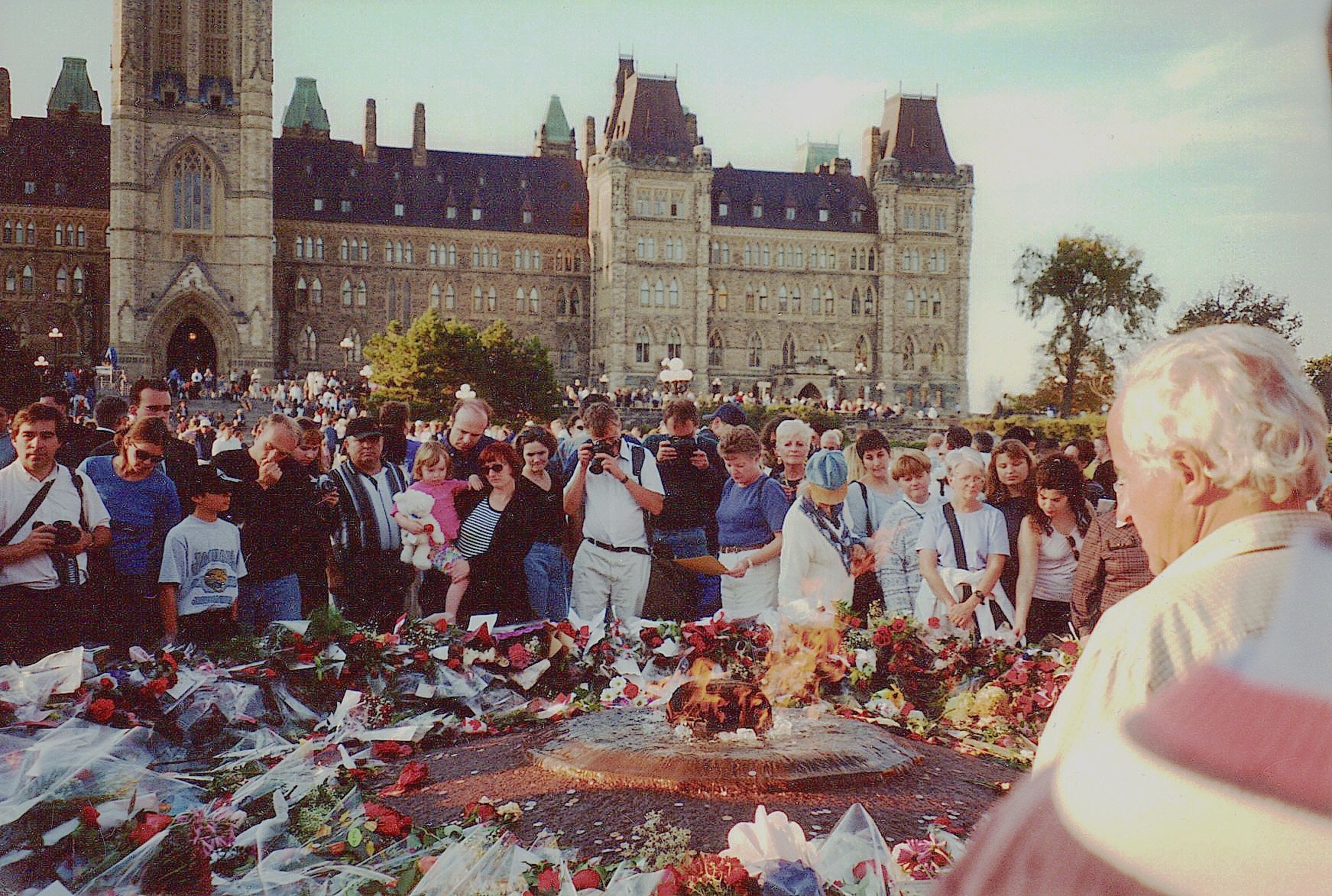
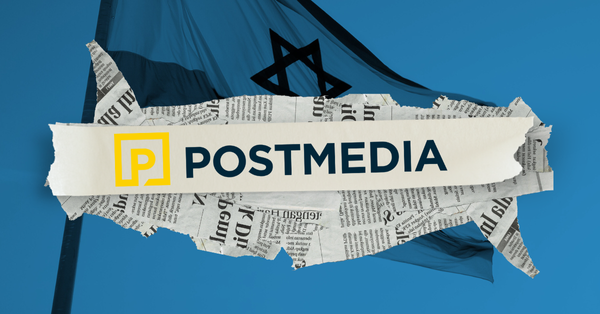
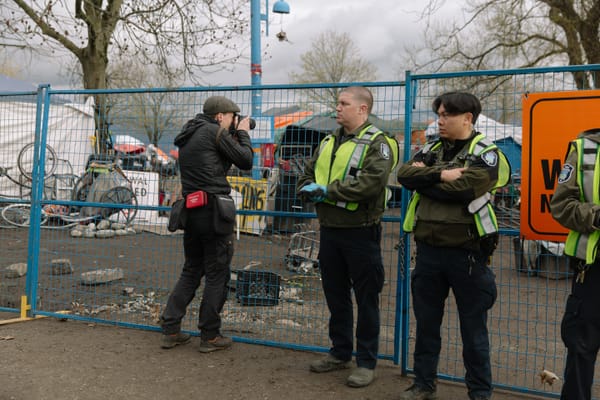
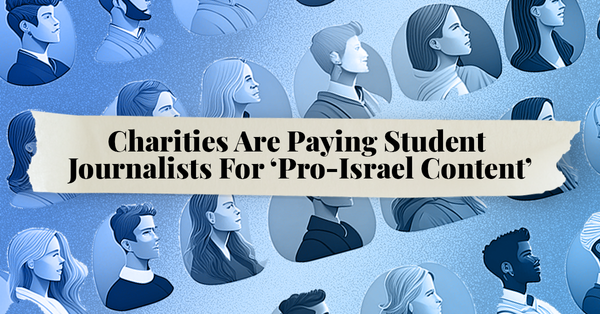
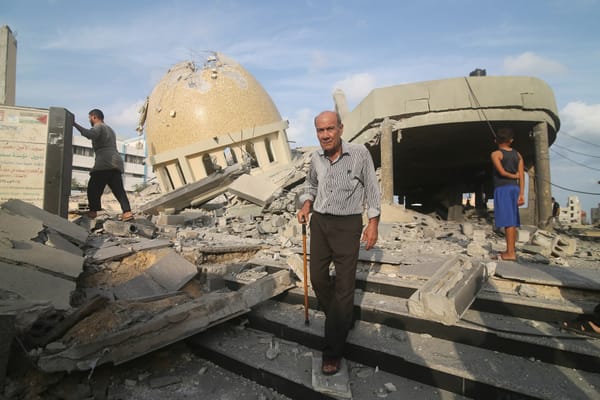
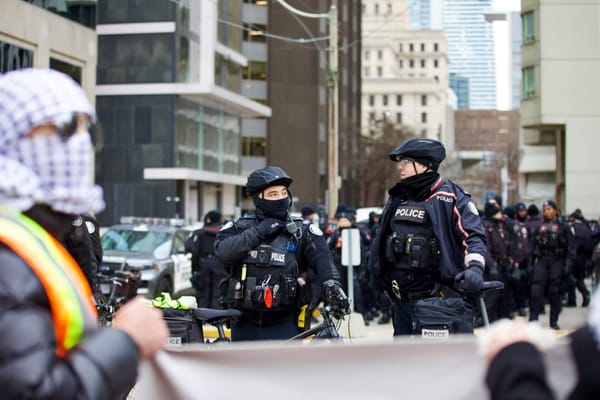
Member discussion